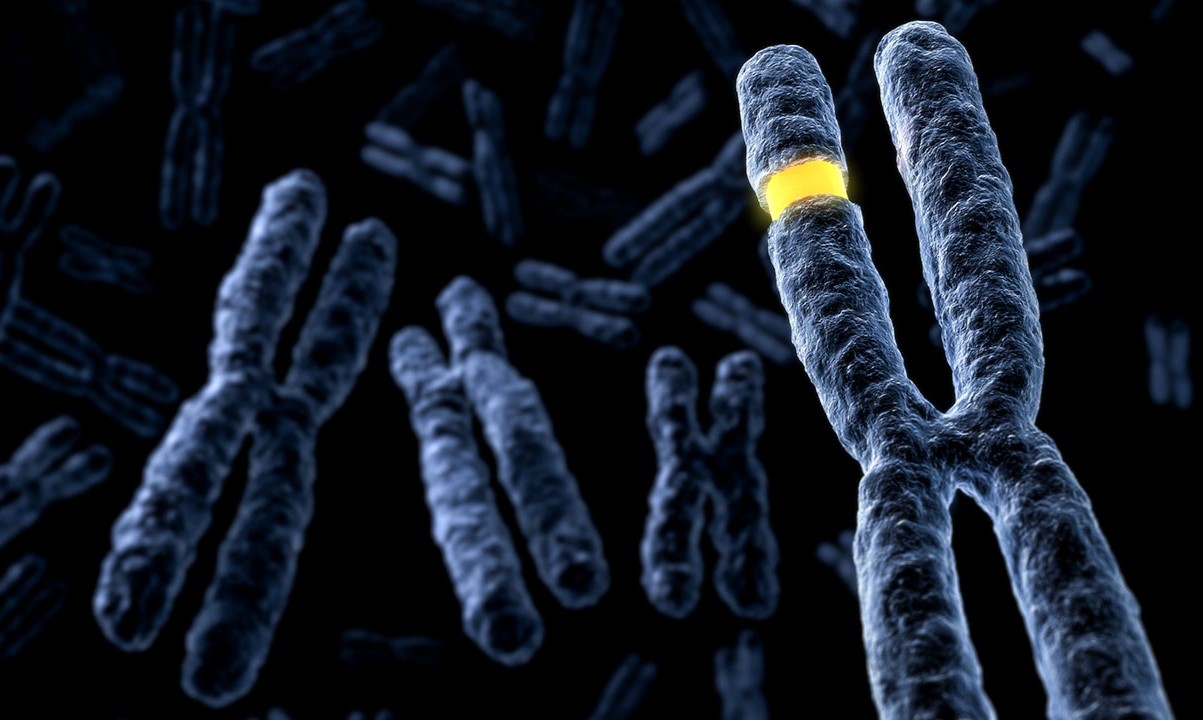
Monosomy 8q12 21 is a rare genetic condition that involves the deletion of a segment on the long arm of chromosome 8. This deletion can lead to various developmental and health issues. Symptoms often include intellectual disabilities, growth delays, and distinct facial features. Diagnosis typically requires genetic testing, such as chromosomal microarray analysis. Treatment focuses on managing symptoms and may involve a team of specialists, including geneticists, neurologists, and therapists. Understanding this condition is crucial for providing appropriate care and support to affected individuals and their families. Let's dive into 25 essential facts about Monosomy 8q12 21 to better grasp its impact.
Key Takeaways:
- Monosomy 8q12 is a rare disorder where a part of chromosome 8 is missing, leading to physical, developmental, and health challenges. Early diagnosis and support are crucial for affected individuals.
- Understanding Monosomy 8q12's genetic basis and its impact on physical, cognitive, and health aspects can help families and healthcare professionals provide better support and management for those affected.
What is Monosomy 8q12?
Monosomy 8q12 is a rare chromosomal disorder where a portion of chromosome 8 is missing. This condition can lead to various physical and developmental challenges. Understanding its intricacies can help in managing and supporting those affected.
- Monosomy 8q12 involves the deletion of a segment on the long arm (q) of chromosome 8.
- This chromosomal deletion can vary in size, affecting different genes.
- The condition is often diagnosed through genetic testing, such as karyotyping or microarray analysis.
- Symptoms can range from mild to severe, depending on the size and location of the deletion.
Physical Characteristics
Individuals with Monosomy 8q12 may exhibit distinct physical features. These characteristics can help in early diagnosis and intervention.
- Common physical traits include a small head size (microcephaly).
- Some individuals may have distinctive facial features, such as a broad forehead or a flat nasal bridge.
- Growth delays are often observed, leading to shorter stature.
- Skeletal abnormalities, like scoliosis or joint issues, can also be present.
Developmental and Cognitive Impact
Monosomy 8q12 can affect cognitive and developmental milestones. Early intervention can improve outcomes for those affected.
- Developmental delays are common, particularly in speech and motor skills.
- Intellectual disability can range from mild to moderate.
- Behavioral issues, such as hyperactivity or anxiety, may be present.
- Some children may have learning disabilities, requiring special education support.
Health Complications
Health issues associated with Monosomy 8q12 can vary widely. Regular medical check-ups are crucial for managing these complications.
- Heart defects, such as ventricular septal defects, can occur.
- Kidney abnormalities, like renal dysplasia, may be present.
- Gastrointestinal issues, including feeding difficulties, are common in infants.
- Respiratory problems, such as recurrent infections, can affect overall health.
Genetic and Inheritance Patterns
Understanding the genetic basis of Monosomy 8q12 helps in assessing risks for future pregnancies and family planning.
- Monosomy 8q12 is typically not inherited but occurs as a random event during the formation of reproductive cells.
- In rare cases, it can be inherited from a parent with a balanced translocation.
- Genetic counseling is recommended for families affected by Monosomy 8q12.
- Prenatal testing, like amniocentesis, can detect the condition before birth.
Support and Resources
Support networks and resources are vital for families dealing with Monosomy 8q12. They provide information, emotional support, and practical assistance.
- Early intervention programs can help address developmental delays.
- Special education services are often necessary to support learning needs.
- Support groups and online communities offer a platform for sharing experiences and advice.
- Medical specialists, such as geneticists and pediatricians, play a key role in managing the condition.
- Advocacy organizations work to raise awareness and fund research for rare chromosomal disorders.
Final Thoughts on Monosomy 8q12 21
Monosomy 8q12 21, a rare genetic disorder, impacts many aspects of life. Understanding its symptoms, causes, and treatments can help those affected and their families. Early diagnosis and intervention play crucial roles in managing the condition. Genetic counseling offers valuable support and guidance for families navigating this journey.
Research continues to uncover more about Monosomy 8q12 21, paving the way for better treatments and possibly a cure. Staying informed and connected with medical professionals and support groups can make a significant difference.
Remember, every piece of knowledge gained brings us closer to improving the lives of those with Monosomy 8q12 21. Keep learning, stay hopeful, and support each other through this challenging path.
Frequently Asked Questions
Was this page helpful?
Our commitment to delivering trustworthy and engaging content is at the heart of what we do. Each fact on our site is contributed by real users like you, bringing a wealth of diverse insights and information. To ensure the highest standards of accuracy and reliability, our dedicated editors meticulously review each submission. This process guarantees that the facts we share are not only fascinating but also credible. Trust in our commitment to quality and authenticity as you explore and learn with us.
